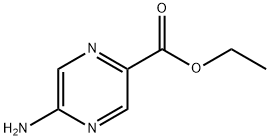I just came across a fascinating study from the University of Texas at San Antonio team in Aging Cell. They say immune resilience is a key driver of health generation. But I'm left with so many questions. How exactly can we measure our own immune resilience in daily life? Are there specific lifestyle changes, like diet or exercise, that can boost this resilience, especially during that crucial 40 - 70 age window? And if immune resilience declines after 70, is there anything we can do to slow down that decline? Also, how does the TCF7 gene interact with other factors in our body to influence immune resilience?
Unraveling the Mystery: Immune Resilience the Ultimate Game - Changer for Our Health?
Related Products More >
-
- 90-05-1
- equest For Quotation
-
- 607-80-7
- equest For Quotation
-
- 4642-95-9
- equest For Quotation
-
- 36687-82-8
- equest For Quotation
-
- 271241-14-6
- equest For Quotation
-
- 146-48-5
- equest For Quotation
-
- 102517-79-6
- equest For Quotation
- Aluminum foil bag
-
- equest For Quotation
- 25



 沪ICP备2021018848号-5
沪ICP备2021018848号-5

When it comes to lifestyle changes to boost immune resilience, especially during that 40 - 70 age window, diet and exercise are definitely important. Eating a balanced diet rich in fruits, vegetables, whole grains, lean proteins, and healthy fats can provide the nutrients your immune system needs. For example, foods high in vitamin C, like oranges and strawberries, can help boost immune function. And omega - 3 fatty acids found in fish like salmon can reduce inflammation, which is one of the things immune resilience fights against.
Exercise is also crucial. Aim for at least 150 minutes of moderate - intensity aerobic exercise, like brisk walking or cycling, per week. Exercise helps circulate immune cells throughout the body more efficiently, and it can also reduce stress, which is important because high stress levels can weaken the immune system. Additionally, getting enough sleep (around 7 - 9 hours a night) and managing stress through relaxation techniques like meditation or yoga can contribute to better immune resilience.
Now, if immune resilience declines after 70, there are still things you can do. While the study shows that the survival advantage from immune resilience levels off after 70, maintaining a healthy lifestyle can still slow down the decline. Keep up with a balanced diet, stay as active as possible, even if it's just light walking or gentle stretching. Social engagement also matters. Staying connected with friends and family can reduce stress and have a positive impact on your overall well - being, which in turn can support your immune system.
As for how the TCF7 gene interacts with other factors in the body to influence immune resilience, it's a bit complex. The TCF7 gene is important for maintaining the regenerative potential of immune cells. It works together with other genes and proteins in the body. For example, certain hormones and cytokines (signaling molecules in the immune system) can interact with the TCF7 - regulated pathways. When the body is under stress, these interactions might change, potentially affecting the function of the TCF7 gene and thus immune resilience. But scientists are still studying these interactions in more detail to fully understand how it all works.
In short, while there's a lot we're still learning about immune resilience, taking care of our bodies through a healthy lifestyle is the best way to support it at any age.
Well, it's not super straightforward to measure it at home like checking your weight. But there are some signs you can look out for. For instance, how often you get sick. If you're constantly catching colds, flus, or other infections, that might be a sign your immune resilience isn't at its best. Also, how quickly you recover from illnesses can give you a clue. If it takes you ages to bounce back from a simple cold, your immune resilience could use a boost. There are also some professional tests available at clinics, like checking your blood markers related to the immune system, but they might be a bit expensive and not something you can do casually.
Lifestyle changes to boost immune resilience, especially between 40 - 70?
Absolutely! Diet is a big one. Eating a balanced diet rich in fruits, vegetables, whole grains, and lean proteins can give your immune system the nutrients it needs. Foods high in antioxidants, like berries and leafy greens, are great for fighting off inflammation. Regular exercise is also crucial. It helps improve blood circulation, which in turn supports the immune system. Aim for at least 150 minutes of moderate - intensity exercise a week. And don't forget about sleep. Getting enough quality sleep is when your body repairs and recharges, including your immune cells. Managing stress is important too. Chronic stress can weaken your immune system, so try relaxation techniques like meditation or yoga.
Slowing down the decline of immune resilience after 70?
It's tougher as we age, but there are still things you can do. Continuing with a healthy diet and regular exercise is key. You might also want to talk to your doctor about supplements that could support your immune system, like vitamin D or zinc. Staying socially active can help as well. Being around friends and family can reduce stress and boost your mood, which has a positive impact on your immune resilience.
How does the TCF7 gene interact with other factors to influence immune resilience?
From the study, we know the TCF7 gene is super important for maintaining the regenerative potential of immune cells. It's like the conductor of an orchestra, working with other genes and factors in our body. For example, it might interact with genes that control inflammation. If the TCF7 gene is functioning well, it can help keep inflammation in check, which is one of the big enemies of immune resilience. It also probably works with genes involved in the production and function of different immune cells, making sure they're all working together harmoniously to keep us healthy.